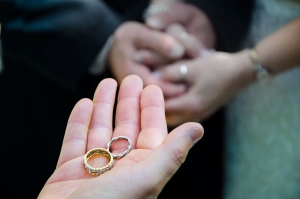 As everyone knows, child custody is one aspect of divorce that can cause terrible bitterness and turn an otherwise amicable split into a drawn-out, expensive battle that leaves everyone battered and bruised, including the kids. The only good thing about child custody disputes is that they operate on an established set of laws and case precedents.
As everyone knows, child custody is one aspect of divorce that can cause terrible bitterness and turn an otherwise amicable split into a drawn-out, expensive battle that leaves everyone battered and bruised, including the kids. The only good thing about child custody disputes is that they operate on an established set of laws and case precedents.
As discussed in an article on LATimes.com, determining who should get custody of the family pet is a totally different story. Pets are still viewed as property by the courts, even though many couples regard them much more personally. Because there are very few rules when it comes to deciding who should get custody of the pets, there is a wide variance among judges. Couples cannot assume a judge will make the decision based on who brought the pet into the relationship, nor can they count on the same elaborate factors being assessed that are considered when deciding child custody. In the olden days some judges would rely on “calling contests,” in which the spouse who could get the dog to come to them won custody. Far from scientific, courts have moved away from that process today.
So what are the options for spouses caught in a battle over your pet pooch? According to the LA Times, one possibility is to do what people with human children do, and work out a joint custody agreement. With a little extra work, both of you can keep taking your pride and joy to the dog park. Another benefit is that with shared custody you can always ensure there is someone around to look after your dog if you have to leave town.
This obviously won’t work if you and your ex will be geographically separate. If that’s the case, then you will need to do an honest evaluation of who is better equipped to take care of your pet. Who will be away from home more, which one of you has traditionally done most of the caretaking and, if you do have kids, how will child custody affect the decision.
Continue reading
 If a spouse mixes business with personal life, for instance, by using a personal credit card for business matters, the result will likely be no different than what would happen if it were a personal credit card in a divorce. Despite the fact that the card is tied to business and relate to only one spouse, both spouses may still end up responsible for the payments.
If a spouse mixes business with personal life, for instance, by using a personal credit card for business matters, the result will likely be no different than what would happen if it were a personal credit card in a divorce. Despite the fact that the card is tied to business and relate to only one spouse, both spouses may still end up responsible for the payments. Charlotte Divorce Lawyer Blog
Charlotte Divorce Lawyer Blog


















